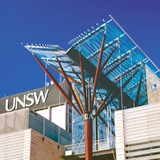Confronting the Past in Contemporary Europe - ARTS3786
Faculty: Faculty of Arts and Social Sciences
School: School of Humanities and Languages
Course Outline: School of Humanities & Languages
Campus: Sydney
Career: Undergraduate
Units of Credit: 6
EFTSL: 0.12500 (more info)
Indicative Contact Hours per Week: 3
Enrolment Requirements:
Prerequisite: 48 UOC overall, including 6 UOC at level 1 and 6 UOC at level 2 in one of the following streams, European Studies or History; or 48 UOC overall, including 12 UOC in German Studies language courses
CSS Contribution Charge: 1 (more info)
Tuition Fee: See Tuition Fee Schedule
Further Information: See Class Timetable
View course information for previous years.
Description
Subject Area: European Studies
This course can also be studied in the following specialisations: History, German Studies
What role does Europe's terrible twentieth-century history play today and how has this changed since 1945? To what extent does history divide or unite Europeans? Has Germany 'come to terms' with its Nazi past? How are Stalinism and the Soviet Union remembered in Putin's Russia? In this course you will explore how Europeans have coped with their recent pasts, particularly the experiences of fascism and Nazism, of World War II and the Holocaust, and of Soviet-style communism. You will be introduced to the interdisciplinary fields of 'transitional justice' and 'memory studies' in the context of contemporary Europe. You will examine attempts to achieve justice, to identify perpetrators, victims, collaborators and bystanders, to reconcile former enemies and ideological opponents, and to develop new, usable understandings of the past. You will study the many ways in which the past is addressed, including though trials and purges, through commemoration rituals, memorials, museums and monuments, through official histories and popular memories, as well as the public and scholarly debates that surround them. The course draws on cases from across Europe, including France, Germany, Poland, Russia and Spain, and considers the role of the European Union.










